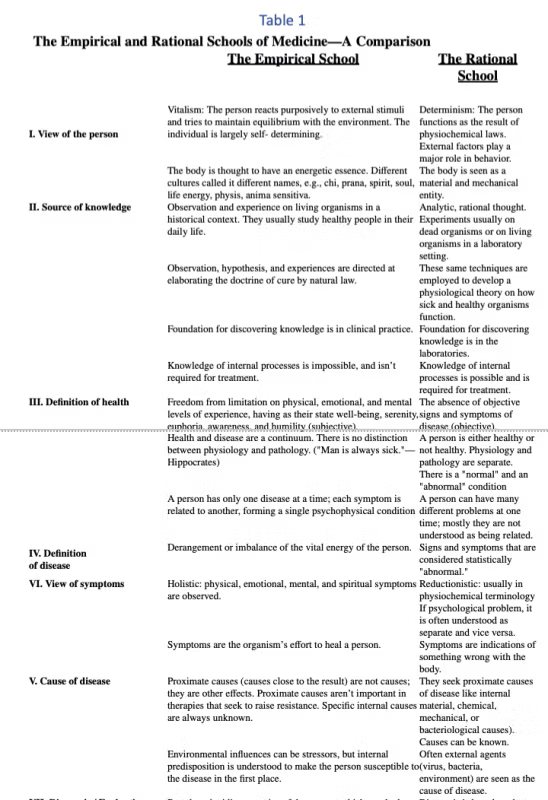This is why the working class doesn’t trust Western leftists anymore

The scandal that has recently engulfed UK Labour Prime Minister Keir Starmer is not just about political corruption.
There have always been corrupt politicians – even amongst the leaders of social democratic parties – although it is impossible to imagine Jeremy Corbyn or Harold Wilson accepting tens of thousands of pounds’ worth of designer label clothing, gifts and free luxury accommodation from a billionaire businessman.
There is something very contemporary about Starmer’s rapacious greed, and it reveals a fundamental truth about modern social democratic parties in the West – namely that these parties have long ceased to represent the interests of the working class and ordinary citizens, and today simply do the bidding of the global elites that rule and control most Western countries.
That being the case, it is hardly surprising that these elites should shower copious benefits upon political leaders that so assiduously protect their massive wealth, social status and power.
This, of course, is not a peculiarly British phenomenon. In Australia, the fondness of Labor Prime Minister Anthony Albanese for accepting corporate largesse is legendary – although the gifts regularly received by Albanese (including free tickets to football matches and Taylor Swift concerts) seem decidedly miserly compared to the bundle of upmarket loot recently collared by Starmer and his family.
Nor should it surprise anyone that these compliant political leaders should seek to ape the luxurious lifestyles of their masters – even when they cannot quite afford to do so.
How has this fundamental political transformation come about?
Essentially it has been driven by the rise of the global elites and the new economic world order that they have created since the 1980s.
At a political level this transformation began with Margaret Thatcher and Ronald Reagan – who destroyed the social democratic consensus that had prevailed in most Western liberal democracies until the 1980s.
That progressive consensus sought to incorporate the working class into Western nation states by way of introducing welfare state measures and higher living standards for workers.
This process commenced earliest in Australia – at the time of federation in 1900. In America it began with Franklin Roosevelt’s New Deal in the 1930s, and in the UK it had its origins in David Lloyd-George’s welfare reforms in the early 1900s and was completed by the post-WWII government of Clement Attlee.
Twentieth-century Labour parties in the UK and Australia, and the Democratic Party in America, created and maintained the social democratic consensus.
These progressive parties delivered substantial economic and social benefits for the working class and ordinary citizens down to the 1980s, as well as ensuring decades of political stability in their respective nations.
Thatcher and Reagan dismantled the social democratic consensus and ushered in the economic changes that rapidly displaced the traditional working class economically and culturally. These changes, together with the subsequent emergence of a new global economic world order, radically transformed progressive politics in Western democracies.
The older Labour parties had by the 1990s completely aligned themselves with the new global elites – as evidenced by their wholesale adoption of elite woke ideologies such as identity politics and catastrophic climate change.
These parties also committed themselves policies that accorded with the economic interests of the global elites – minimal taxes for corporations; a regressive tax system for ordinary citizens; massive subsidies for renewable energy companies; privatisation of the energy market; maintaining an overpriced property market; and permitting immigration on a massive scale.
It is true that these parties retained the ideological pretence of acting in the interests of the working class – even Starmer maintains this pretence – but by the 1990s they acted almost exclusively in the interests of the new global elites.
Thus social democratic parties eschewed radical economic reform, and instead set about conferring privileges on various status groups – usually defined biologically in terms of race or gender – thereby creating compliant elites within those groups that now uncritically supported the newly emerging global economic world order.
The extraordinary transformation of social democratic parties is reflected in the respective ideological dispositions of their older and newer leaders.
Michael Foot and Tony Blair have nothing in common ideologically. Nor do the Australian Labor leaders Arthur Caldwell and Bob Hawke, or, for that matter, Lyndon Johnson and Barack Obama or Hillary Clinton.
Foot, Caldwell and Johnson were all committed to improving the lot of the working class by means of genuine economic and social reform. It is inconceivable they would have supported transgender rights, for example, or any of the other elite ideologies that modern social democratic leaders so fiercely champion.
Unfortunately, however, for modern social democratic political leaders, their commitment to divisive and irrational ideologies, together with their desire to preserve the wealth of the global elites and their refusal to contemplate fundamental economic reform, has led to the societies that they purport to govern becoming increasingly politically unstable and dysfunctional.
This process of political disintegration has gone furthest in America – fuelled by the emergence of Trumpian populism that has destroyed the traditional Republican Party, is intent on dismantling the liberal democratic order in its entirety, and has fostered an unprecedented degree of divisiveness and racial tension.
In the UK the cost-of-living crisis – code for ordinary workers being unable to pay their rent, buy sufficient food or pay their energy bills, let alone contemplate buying a house – intensifies daily. Race and anti-immigration riots are now commonplace, and the British economy continues on its inevitable downward spiral.
In Australia similar intractable problems exist, but the kind of serious political instability and division that characterise the UK and America has not yet emerged in full force. It no doubt will in time.
The underlying problem that confronts social democratic political leaders in the West is that the global elites, in whose economic and cultural interests they govern, are unwilling to give up their wealth and status or even contemplate the kind of economic reforms that would solve the pressing problems that confront Western societies.
Smugly cocooned within their irrational ideologies, unwilling to compromise and oblivious to history, not only do the global elites refuse to incorporate the traditional working class back into the societies that they have made dysfunctional, they also treat them with unconcealed contempt. Hence the drift of working class votes to right–wing populist parties that promise to reverse working class economic and cultural displacement.
Hillary Clinton’s description of the American working class as “deplorables” captures perfectly the world-view of the contemporary global elites. Compared to these elites, progressive elements within the 19th-century bourgeoisie were paragons of virtue, self-sacrifice and political common sense.
Even more disturbing is the fact that leading social democratic politicians in the West, mimicking their global elite masters, are firmly committed to irrational foreign policies – such as supporting radical right-wing political regimes in Israel and Ukraine that are intent on provoking wider wars in the Middle East and Europe.
On such misguided foreign policy programs Starmer, Biden and Harris, and Albanese are in complete and furious agreement.
That brings us back to Starmer.
This is the politician who was a fervent supporter of Corbyn until he lost the 2022 election, who then, belatedly, discovered that Corbyn had been an anti-Semite for decades and proceeded to ruthlessly drive him and his supporters out of the Labour party.
The recent revelations about his ravenous greed have, understandably, caused Starmer’s popularity in the UK to plummet. The Labour Party leadership, however, has continued to support him. After all, Starmer is not the only prominent Labour politician to have received gifts from his generous benefactor – Angela Rayner also confessed to being a beneficiary earlier this week.
Who is this princely and generous donor?
None other than billionaire businessman and Labour peer Baron Waheed Ali – an openly gay media tycoon who was made a life peer by Tony Blair in 1998. This is, of course, one of the very few status benefits that politicians can confer on members of the global elite. It is not surprising, therefore, that their gratitude knows no bounds.
After Starmer was finally forced to disclose the exact amount of largesse that he and his family had received from the generous baron earlier this week, he attempted to justify staying in Ali’s £3.5 million apartment for a month by saying that he did so because his teenage son needed peace and quiet to study for his exams.
“Any father would do the same for his son” said Starmer – completely oblivious to the fact that most fathers in the UK do not have easy access to the lavish apartments of wealthy benefactors like the good-hearted baron.
The compliant mainstream media in Britain have not been overly critical of Starmer this week – after all, they made him prime minister – but one person has had the courage to publicly call him to account for his disgraceful and shameless behaviour.
Earlier this week, left-wing Labour MP Rosie Duffield resigned from the Labour Party, telling Starmer in her resignation letter “your sleaze, nepotism and apparent avarice are off the scale… I am so ashamed of what you and your inner circle have done to tarnish and humiliate our once great party.”
Duffield also pointed out the rank hypocrisy of a person of “far above average wealth” having “accepted expensive personal gifts of designer suits and glasses” while at the same time abolishing the pensioner winter fuel benefit.
She ended her letter by saying “I hope to be able to return to the party in the future, when it again resembles the party I love, putting the needs of the many before the greed of the few.”
It is fitting that this apt condemnation of Starmer and the modern Labour Party that he leads should have been delivered by a politician who still remembers the progressive values that social democratic parties used to stand for – before they were captured and corrupted by the global elites.
I suspect, however, that Starmer and his avaricious colleagues probably do not know what Duffield is talking about – and, even if they did, they simply would not care.
Graham Hryce, an Australian journalist and former media lawyer, whose work has been published in The Australian, the Sydney Morning Herald, the Age, the Sunday Mail, the Spectator and Quadrant.




No comments:
Post a Comment